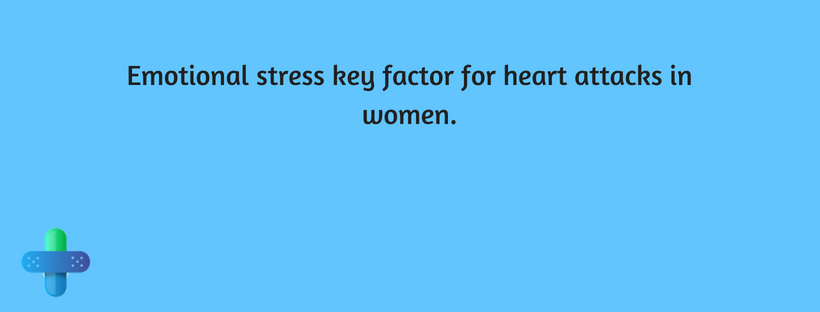Emotional stress triggers “spontaneous coronary artery dissection” (SCAD), a condition that causes around one-third of heart attacks in women under 60 years of age, researchers say.
SCAD occurs when the lining of an artery supplying blood to the heart tears away from the artery’s outer layer. Blood leaks into space between layers and forms a clot, which narrows the artery and restricts blood flow.
Symptoms are similar to a heart attack and include chest pain, rapid heartbeat, pain in the arms, shoulders or jaw, and feeling sick, short of breath, sweaty, and light headed.
The findings showed that emotional stress, occurring in about half of patients (49 per cent), prior to SCAD has proven to be one of the major causes of heart attack in women.
While in 30 per cent of cases, physical stress (in 10 per cent this was lifting more than 23 kg) occurred before SCAD, the most common predisposing condition was fibromuscular dysplasia (40 per cent) — which causes abnormal cell development in the arteries and can lead to narrowing (stenosis), aneurysms, or tears (dissections).
Emotional stress appears to be a major trigger for SCAD. Fibromuscular dysplasia, which is more common in women than men, also played a major role — it often has no symptoms but in some patients, it causes headaches or a swooshing sound in the ears called pulsatile tinnitus,” said lead investigator Jacqueline Saw, Professor at the University of British Columbia in Vancouver, Canada.
Other predisposing conditions were five or more pregnancies, being peripartum, fertility treatment, systemic inflammatory conditions and connective tissue disorders.
For the study, the team examined 750 patients, with an average age of 52 years, with SCAD at 20 centres in Canada and two centres in the US between 2014 and 2018.
The main symptom was chest pain, which occurred in nine out of ten patients.
On angiography, the left anterior descending artery was most commonly affected (52 per cent), and long diffuse narrowing was the most common feature (called type 2 SCAD; 58 per cent).
The results were presented at the ESC Congress 2018, the annual conference of the European Society of Cardiology in Munich, Germany. IANS
Source: Greater Kashmir

